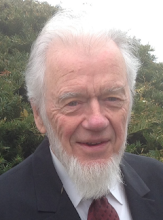A week ago (on Jan. 23), the Bulletin of the Atomic Scientists announced the setting of what they call the Doomsday Clock. Contrary to my expectation, the clock was set the same as last year: 90 seconds to midnight (with midnight representing “doomsday”).
For
75 years now, the Bulletin of the Atomic Scientists has been announcing the
setting of the Doomsday Clock. That nonprofit organization was founded in 1945 by
Albert Einstein and former Manhattan Project scientists. They introduced the
Doomsday Clock two years later.
The
first setting of the Clock was seven minutes to midnight. In 1949, with the
explosion of a nuclear device by the Soviet Union and the beginning of the arms
race, it was reset to three minutes before midnight.
The
testing of the hydrogen bomb in 1952 led to resetting the Clock in the
following January to just two minutes before doomsday. Relations between the
U.S. and the USSR improved over the next few years, though, and in 1960 the
hands on the Clock were moved back to seven minutes.
Over
the next decades, the Doomsday Clock kept going up and down, reaching the
farthest from midnight, 17 minutes, in 1991. But in 2002 it was back to seven
minutes and has never been further since. In 2015 it was back down to three
minutes where it started in 1947.
In
January last year, the Clock was set at 90 seconds. the closest to
midnight it had ever been, and it was kept at that setting last week. I expected
it to be set even closer to “doomsday” because of the threat of expanding, and
perhaps nuclear, war in the Levant.*
The
threat of nuclear war was the main basis for setting the Doomsday Clock for
the first 60 years. In 2007, however, climate change was added to the prospect
of nuclear annihilation as another portentous threat to humankind, and the hands
on the Clock were set at five minutes to midnight.
The
announcement regarding this year’s setting of the Clock stated that there were four
main considerations for determining that setting: 1) the many dimensions of
nuclear threat, 2) an ominous climate change outlook, 3) evolving biological
threats, and 4) the dangers of AI.**
How
should we respond to the current setting of the Doomsday Clock? This question
surely demands our thoughtful attention. Let me suggest three things:
1) Don’t ignore
the Doomsday Clock. It would be easy to shrug off the Clock’s warning
because of denial, indifference, or the unwillingness to face seriously the present
predicament the world is in—or even just due to the pressure of meeting the demands
of our everyday lives.
2) Don’t let the
Doomsday Clock get you down. Depression, of course, is the result of feeling
“down” for whatever reason. Too much attention to the Clock can certainly cause
depression. Just as we shouldn’t ignore the clock, neither should we think
about it “all the time.”
3) Work
actively to elect candidates of the better political party, that is, the
party working more consistently to deal with the dire problems besetting the
whole world.
On the website linked to in the second
footnote, we are told that the threats the world is currently facing “are of
such a character and magnitude that no one nation or leader can bring them
under control.”
They go on to state that “three of the
world’s leading powers—the United States, China, and Russia—should commence
serious dialogue about each of the global threats.”
Further, they contend that those three
countries “need to take responsibility for the existential danger the world now
faces. They have the capacity to pull the world back from the brink of
catastrophe. They should do so, with clarity and courage, and without delay.”
I am not at all optimistic, though, that the
three countries mentioned will even begin to do most of what is necessary to
move the hands on the Doomsday Clock farther from midnight.
But I am quite sure there is much more
possibility of that being done under the Democratic Party in the U.S. rather
than by the MAGA party, which includes so many xenophobic people who, among other things, are also global warming and pandemic deniers--as well as deniers of the clear results of the 2020 presidential election.
_____
* I previously wrote about the
Doomsday Clock in August 2020 (see here) and mentioned it briefly (here) in March 2018. Some things now
are much the same, but there are some distinct differences also.
Note too that the Doomsday Clock
elicits attention from around the world. See, for example, this Jan. 17 article
from the Hindustan Times, an Indian
English-language daily newspaper based in Delhi.
** See here for the official “2024 Doomsday
Day Clock Statement” and related information.






.jpeg)

